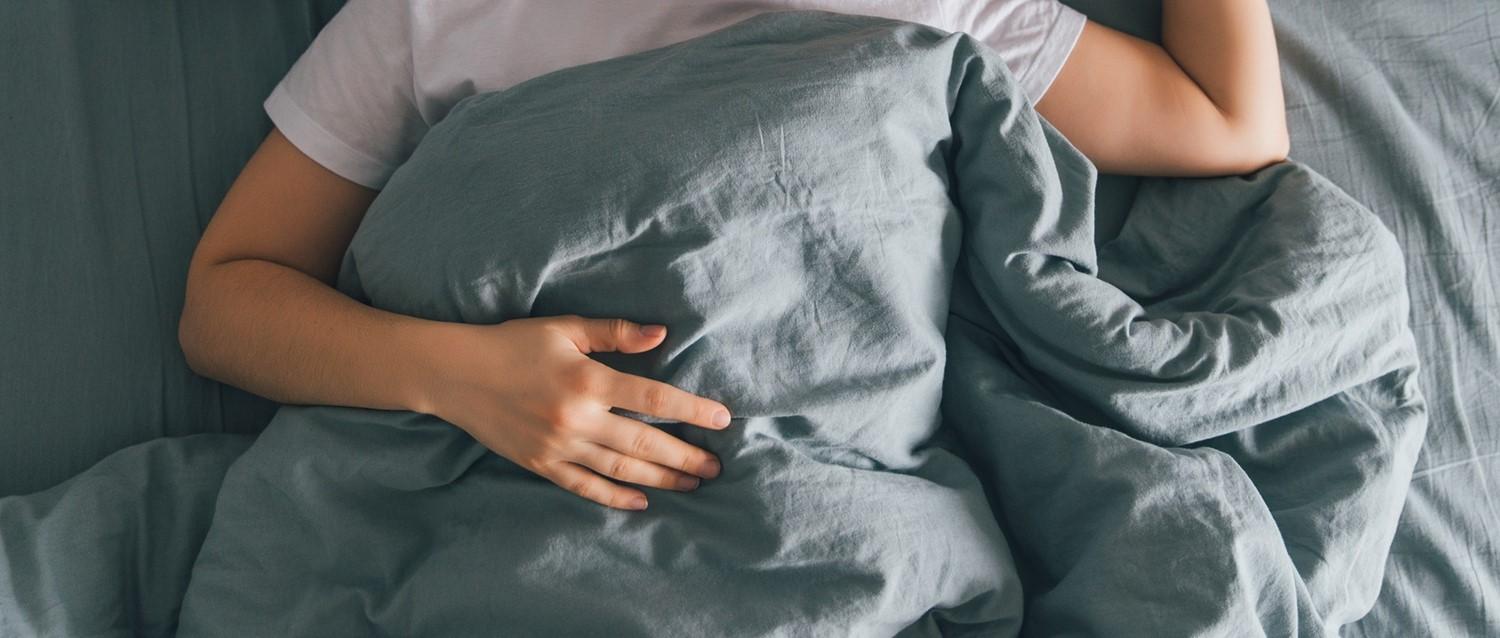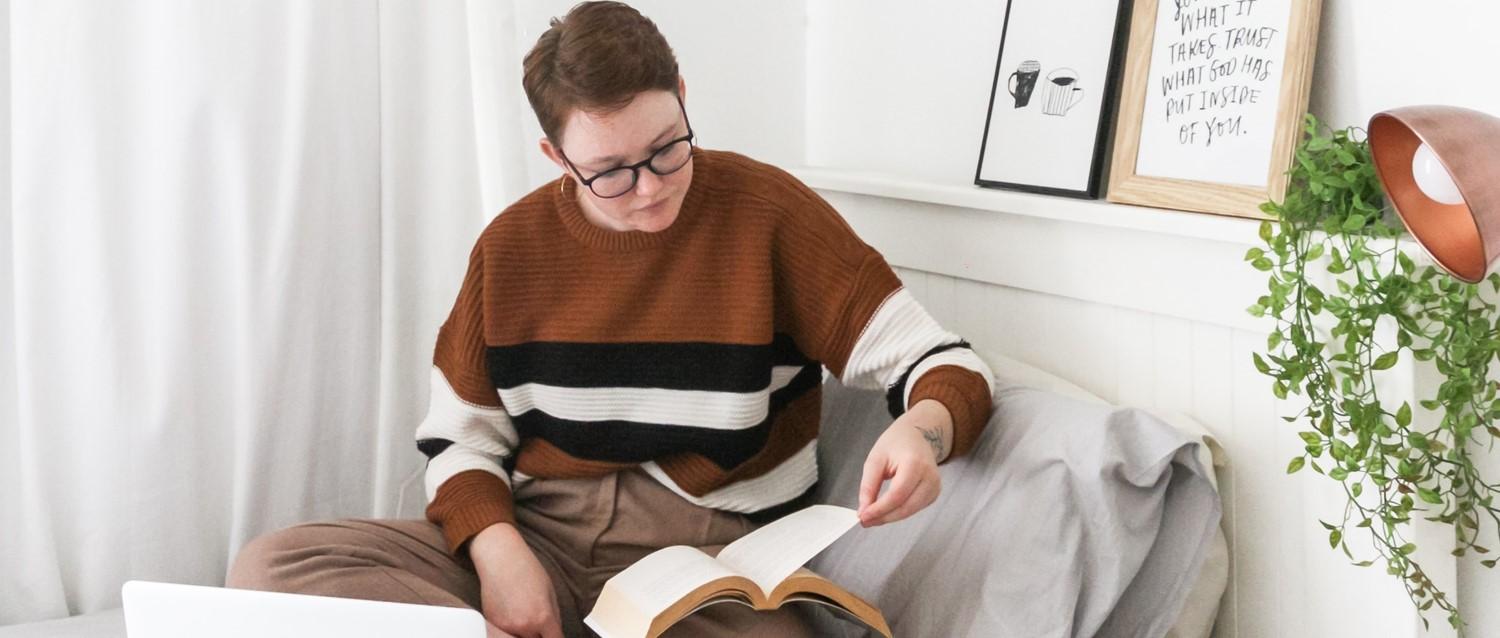
Can hypnotherapy help insomnia?
Peer reviewed by Dr Sarah Jarvis MBE, FRCGPLast updated by Sally TurnerLast updated 12 Jun 2020
Meets Patient’s editorial guidelines
- DownloadDownload
- Share
- Language
- Discussion
Many people who experience frequent insomnia will try anything to get a good night's rest. For Sally Turner, the root of her sleep issues was sharing a bed with her partner. She gave hypnotherapy a go to see whether it could improve her sleep and overall well-being.
In this article:
Video picks for Sleep and insomnia
Insomnia is one of the most common sleep disorders. Studies indicate that between 10-50% of adults deal with insomnia worldwide. The issue can have a serious impact on health and well-being.
Insomnia can result from stress and anxiety, chronic pain and other causes. Many people try all sorts of tips, tricks and treatments to try to get their sleep back on track. Hypnotherapy certainly isn't top of the list for dealing with sleep problems. Simple but fundamental changes to your habits and environment, known as 'sleep hygiene', can make a world of difference to many people.
But they don't work for everyone. In my case, sleeping in bed with a new partner triggered my sleepless nights. Both cognitive behavioural therapy and hypnotherapy have been used successfully to treat insomnia, so I decided to give this approach a try.
Co-sleeping
When you begin a new relationship and share a bed, issues such as snoring, duvet hogging and hopping between homes can take a while to get used to. For some couples, sleep issues persist and can put a strain on the relationship.
Millions of people around the world share their bed with a partner. Sleeping together can be an expression of intimacy, a bonding experience that deepens a romantic relationship. But not everyone finds it easy to share a bed. A recent study by America's National Sleep Foundation found that at least 30% of those surveyed would like to sleep separately from their significant other. And 10% had a previous relationship end over sleep issues.
An overview of research on couple sleeping in 2016 revealed that men and women respond differently to the presence of a bed partner, and co-sleeping is generally more disturbing for women than for men.
The usual suspects - snoring, movement and heat transference - can make it difficult for one or both partners to get a good night's sleep, though research suggests most couples adapt eventually.
Consultant neurologist and sleep physician Dr Guy Leschziner says that hypervigilance can also be an issue, and this has certainly been true for me.
"If you're aware that someone else is in the bed and could disrupt your sleep then that can raise anxiety, particularly for people who already have a slight tendency towards insomnia," he explains. "Even if you feel relaxed and drowsy, on some level your senses are on alert waiting to
pick up any sound or movement so the switch won't flick that allows you to fall asleep."
I'd tried everything, but nothing seemed to help
Back to contentsI've always found it tricky to sleep well in a bed with someone else, even if I feel sleepy and relaxed with them. I enjoy stretching out across my bed, with lots of space around me.
I've been with Olly for a year now. We're not living together yet and spend time between our flats. He doesn't snore and he barely moves when he's asleep, yet I still struggle to drop off beside him, even in his superking bed. Often I can be awake for most of the night. He, on the other hand, falls asleep within five minutes.
I've tried numerous approaches to resolve the issue, including sleeping pills (I get groggy, but don't fall asleep and they're certainly not recommended in anything but the very short term), herbal remedies, relaxation and visualisation, and psychotherapy, but nothing has worked.
Continue reading below
Could hypnotherapy be the answer?
Back to contentsI wondered if something I wasn't consciously aware of might be stopping me co-sleeping, so I booked a session with natural hypnosis expert Andrew Parr.
During hypnosis, I assumed that positive instructions and affirmations would be implanted through the power of suggestion. Parr explained that although that approach can work for some issues, it might not be effective for my long-term co-sleeping problem.
"To fall asleep you need to feel safe enough to drop into an unconscious state," he explains. "If there's any internal resistance to that idea, any feelings that are deeper than those you're consciously aware of, then the power of suggestion just doesn't work."
Parr gently takes people down through subconscious layers of beliefs, thoughts and feelings so they can experience them fully in the body, then release them.
"It's not an intellectual remembering or analysis," he continues. "It's an actual feeling of it from the level of the mind when that thought or feeling was created; this can be much more transformative because you feel it fully and I help you let it go."
As I've had issues co-sleeping since I was a teenager, he explained that at some point there may have been a fear which triggered an underlying stress response - this may be what has prevented me fully 'switching off' and sleeping in certain situations.
The session
Back to contentsAs I lay on the couch, Parr quickly put me at ease and guided me into a state of relaxed focus. My arms, legs and eyelids felt so heavy I couldn't move them, yet this state felt very natural, safe and comfortable. I was fully aware of where I was and what was going on and knew I could awaken and move should I really need to.
When we delved deeper into my sleep issue, I was able to access raw and unsettling feelings from childhood. These centred around absorbing the worry and anxiety of my parents when I was in close proximity to them, and a strong feeling of needing space for myself in relationships. I had loving parents and positive memories of my childhood, so I felt some guilt and shame around accessing these difficult feelings and wanted to push them away. This, Parr explained, was why they had remained trapped in my subconscious.
He helped me experience these raw emotions in my body as I did when I was a child and got me to voice how I felt. I spoke to my parents as if they were in the room. Then we worked on releasing this sense of feeling unsafe and stifled by others' energy which had 'got stuck' in my system.
The 90-minute session was one of the most powerful emotional experiences I've had. I cried a lot and it wasn't easy, but it was worth it. The next time I spent the night with Olly I fell asleep within two hours and slept through - progress for me. I'm going back to see Parr again, as he said that sometimes deep-seated issues can take several sessions to fully resolve.
He also explained that this particular type of hypnotherapy can 'release the brakes', so that people can move forward with ease, without trying to force themselves to change. This has certainly been my experience. As well as progress with the sleep issue, I'm more energised and motivated to get on with life, and things are flowing easily. It's difficult to put my finger on it, but I feel more fully 'me'.
Continue reading below
Where to seek help
Back to contentsHypnotherapy isn't restricted only to those who have trouble sleeping next to a partner - people dealing with a whole range of sleep issues may see some benefit from it. You can find a hypnotherapist via the National Council of Hypnotherapy. Or, for this particular type of natural hypnosis, visit Andrew Parr's website for a list of practitioners he has trained.
"Sometimes a hypnotherapist will just read a pre-written script and won't tailor a session to the individual," warns Parr. "You'll get better results with someone who understands which approach will work best for you and how to safely support and release what might come up."
Hypnotherapy is safe for most people, but if you have a mental health issue or are finding it difficult to process trauma it is important to talk with your GP first.
"There are a number of other things you can try to reduce the hypervigilance state," says Leschziner. "One is cognitive behavioural therapy for sleep, which was developed specifically for insomnia and there's good evidence for it. Mindfulness-based approaches are also effective at reducing that fight or flight response in the body."
Patient picks for Sleep and insomnia

Healthy living
Should you keep a dream journal?
Journaling can be seen as a light-hearted activity, and writing in notebooks throughout the day might not be something we give much thought to. However, recording your dreams can offer benefits for your mental health and the quality of your sleep.
by Emily Jane Bashforth

Healthy living
Do you need more sleep in winter?
Feeling sleepy and sluggish in the middle of winter? You're not alone. We ask two sleep experts whether you really need more rest on colder, shorter days.
by Victoria Raw
Continue reading below
Article history
The information on this page is peer reviewed by qualified clinicians.
12 Jun 2020 | Latest version

Ask, share, connect.
Browse discussions, ask questions, and share experiences across hundreds of health topics.

Feeling unwell?
Assess your symptoms online for free
Sign up to the Patient newsletter
Your weekly dose of clear, trustworthy health advice - written to help you feel informed, confident and in control.
By subscribing you accept our Privacy Policy. You can unsubscribe at any time. We never sell your data.